The Clickfunnels marketing strategy thrives off the ‘websites are dead’ slogan, but Google is as strong as ever, & WordPress websites are still bringing in a ton of traffic and are excellent for lead generation.
So, who wins in the battle of Clickfunnels vs WordPress?
After being a digital marketer for over six years & using both inside my business over the years, I am well versed to give you the low down of Clickfunnels vs WordPress. If you want my in-depth Clickfunnels2.0 review, read it here
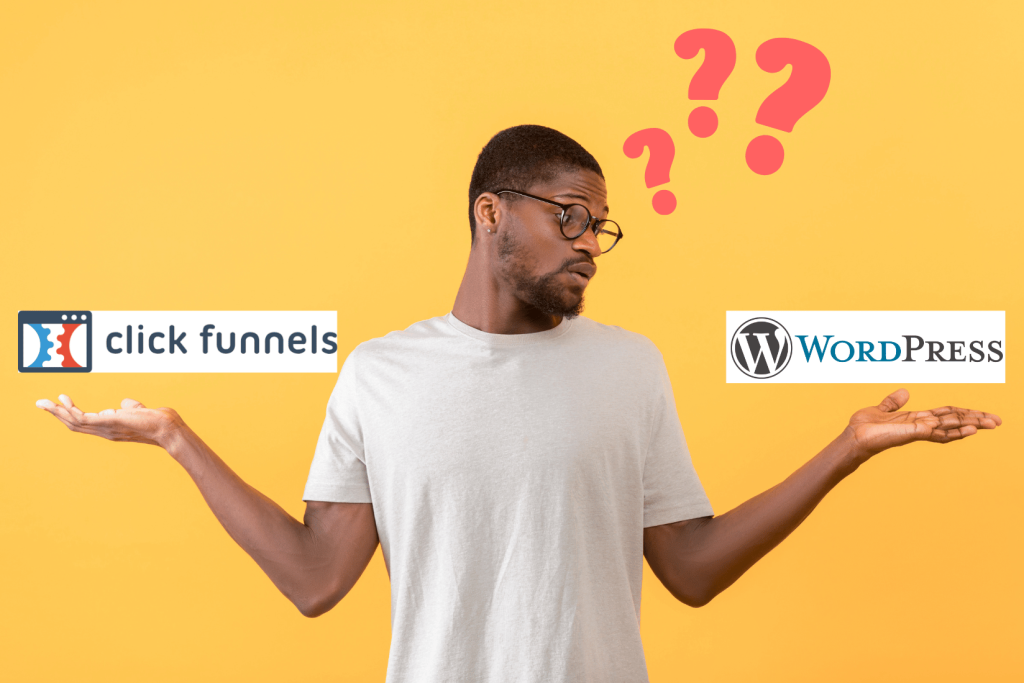
- TL: DR
- How Much Does ClickFunnels Cost?
- Overview of ClickFunnels
- ClickFunnels usability
- Understanding ClickFunnels and WordPress
- WordPress vs ClickFunnels: Ease of Use
- WordPress vs ClickFunnels: Pricing
- WordPress vs. ClickFunnels: customization
- Ideal Use Cases for ClickFunnels
- WordPress vs ClickFunnels: Customization
- WordPress vs ClickFunnels: blogging
- Do you need that complexity to sell your products
- Download ClickFunnels vs WordPress: An In-Depth Comparison Now!
- Pros and Cons: ClickFunnels vs. WordPress
- WordPress vs ClickFunnels: Publishing Tools
- What WordPress page builders are like ClickFunnels?
- WordPress vs ClickFunnels: eCommerce
- WordPress Tools for Search Engine Optimization
- Conclusion: Is ClickFunnels Better than WordPress?
- FAQ
- What are the advantages of a sales funnel?
- Does WordPress have a funnel builder?
- Alternatives to ClickFunnels: Custom Sales Funnel Solutions
- Can you use ClickFunnels as your website?
- What is the difference between a landing page and a sales funnel?
- Can ClickFunnels replace your website?
- Which is more affordable, WordPress or ClickFunnels?
TL: DR
Sales funnel vs. Website (Search engine optimization vs. Disruptive marketing): The battle is big, but it all depends on what you want for your business. As I always say, build a business around your lifestyle, not a lifestyle around your business.
If you are building sales funnels and have a social media marketing strategy, maybe a YouTube marketing strategy, then a funnel builder’s simplicity is your best bet. Check out my article on my ClickFunnels 2.0 review.
But if you are looking for a 24/7 lead generation strategy that grows over time and matures like a fine wine, then you are probably looking at WordPress. If so, please take a look at the tools you need to build your website.
Combining both is best, honestly, but your primary lead generation strategy will dictate your conversion rate.
How Much Does ClickFunnels Cost?
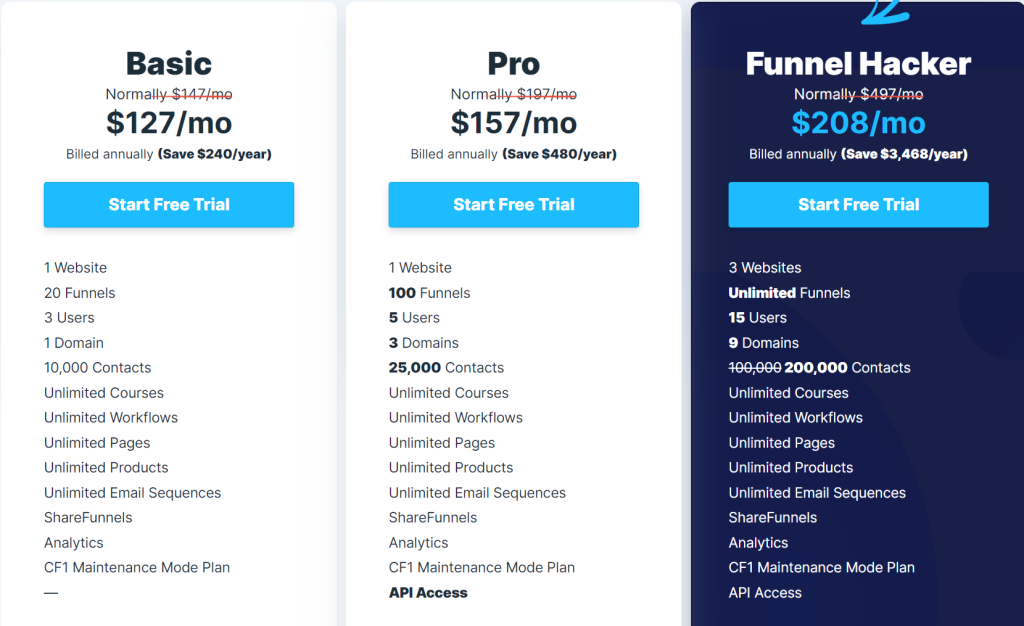
When considering whether to use ClickFunnels or WordPress for your business, one of the first questions that comes to mind is cost. Understanding the investment required for each platform is crucial for making an informed decision. ClickFunnels, known for its robust sales funnel capabilities, offers various pricing tiers to cater to different business needs.
The cost of ClickFunnels can be seen as an investment in a tool designed to create sales funnels that streamline the customer journey and boost conversions. With subscription plans starting from a basic level and moving up to more advanced options, ClickFunnels provides flexibility depending on the complexity and scale of the sales funnels you want to build.
This cost covers features that enable you to design, implement, and optimize your sales funnel easily, making it a worthwhile consideration for businesses focused on aggressive and effective online marketing strategies. Let’s break down the pricing options and see how they compare with what WordPress offers.
Overview of ClickFunnels
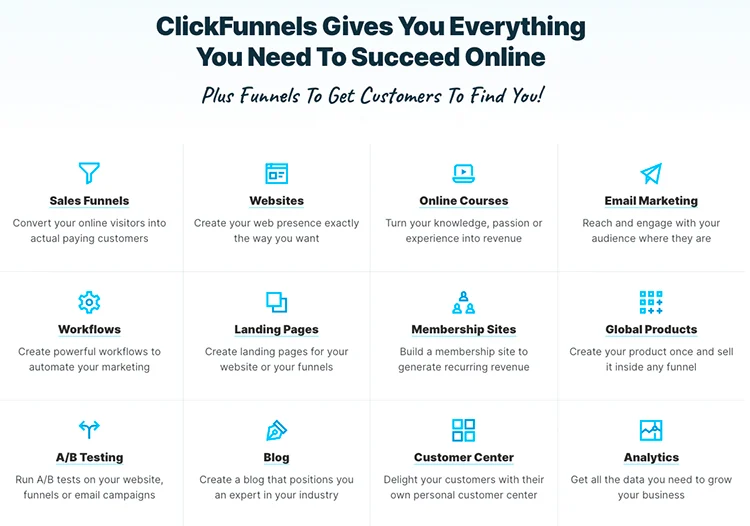
In digital marketing, the right tools can make all the difference in driving conversions and maximizing revenue. ClickFunnels is a powerful platform designed to help businesses create high-converting sales funnels easily.
Whether you’re a seasoned marketer or just starting, ClickFunnels offers a range of features to build, manage, and optimize your sales funnel. Its user-friendly interface allows you to design each step of the customer journey, from landing pages to checkout, ensuring a seamless transition from prospect to customer.
By focusing on creating effective sales funnels, ClickFunnels helps you guide your audience through purchasing, ultimately boosting your sales and growing your business. Let’s delve into what ClickFunnels offers and how it can transform your marketing efforts.

ClickFunnels usability
One of ClickFunnels’ standout features is its exceptional usability, which makes creating sales funnels straightforward, even for those without extensive technical expertise. The platform is designed with user experience in mind, offering a drag-and-drop editor that simplifies the creation of each stage of your sales funnel.
ClickFunnels provides all the tools to build comprehensive sales funnels that convert from landing pages to order forms and follow-up emails. This ease of use lets marketers focus on crafting compelling content and strategies rather than getting bogged down by technical details.
ClickFunnels enables businesses to launch effective marketing campaigns quickly and efficiently by streamlining the process of creating sales funnels. Let’s explore how this usability can benefit your business and enhance your marketing efforts.
Understanding ClickFunnels and WordPress
Understanding each platform’s core functionalities and strengths is essential for making an informed decision between ClickFunnels and WordPress.
ClickFunnels is primarily focused on building and optimizing sales funnels. It provides a comprehensive suite of tools to guide potential customers through a well-defined path, increasing the likelihood of conversion.
This platform is particularly beneficial for businesses that rely heavily on targeted marketing campaigns and need a streamlined process for creating high-converting sales funnels.
On the other hand, WordPress is a versatile content management system (CMS) renowned for its robust search engine optimization (SEO) capabilities.
A WordPress website can be customized with many themes and plugins, making it a powerful tool for businesses looking to build a solid online presence through organic search traffic.
While it may not have the specialized sales funnel features of ClickFunnels, its flexibility, and scalability make it ideal for long-term growth and comprehensive content creation strategies.
By understanding these differences, you can better determine which platform aligns with your business goals, whether you need the focused conversion power of ClickFunnels or the expansive SEO potential of a WordPress website.
Let’s dive deeper into the specific features and benefits of each to help you choose the right tool for your needs.
WordPress vs ClickFunnels: Ease of Use
ClickFunnels is significantly easier to use than WordPress, especially for those focused on creating effective sales funnels.
ClickFunnels is designed with simplicity. Its user-friendly interface allows beginners to build sophisticated sales funnels without needing extensive technical skills.
The drag-and-drop functionality, pre-built funnel templates, and integrated tools make the process straightforward, enabling marketers to set up quickly and launch campaigns that drive conversions.
In contrast, while WordPress is a powerful platform with extensive customization options, its versatility can sometimes come at the cost of ease of use.
Setting up a WordPress website often requires selecting and configuring various plugins, themes, and SEO tools, which can be time-consuming and complex, particularly for those new to web development. This complexity can be a barrier for businesses that must rapidly implement and iterate on their marketing strategies.
For businesses that primarily focus on optimizing the customer journey through a well-structured sales funnel, ClickFunnels offers a streamlined and intuitive solution.
While WordPress excels in search engine optimization and broader content management, the ease of use provided by ClickFunnels can significantly reduce the time and effort required to create high-converting sales funnels, making it a preferred choice for many marketers.
WordPress vs ClickFunnels: Pricing
Pricing is crucial when deciding between WordPress and ClickFunnels for your business. ClickFunnels offers a range of pricing plans designed to meet different needs, starting with a basic package and moving up to more advanced options that provide additional features and support for building complex sales funnels.

While the initial investment in ClickFunnels might seem higher, it includes everything you need to create, manage, and optimize your sales funnel without requiring additional plugins or tools.
On the other hand, WordPress itself is a free platform, but to unlock its full potential, you’ll likely need to invest in a premium WordPress theme, various plugins, and a developer to help with customization.
These costs can add up, mainly if you aim to build a comprehensive and fully optimized WordPress website.
Also, please consider the ongoing costs for hosting services and maintaining your site, which can vary greatly depending on your chosen service provider.
While WordPress offers flexibility and can be more cost-effective if you only need basic functionality, ClickFunnels provides an all-in-one solution that can save time and simplify creating high-converting sales funnels.
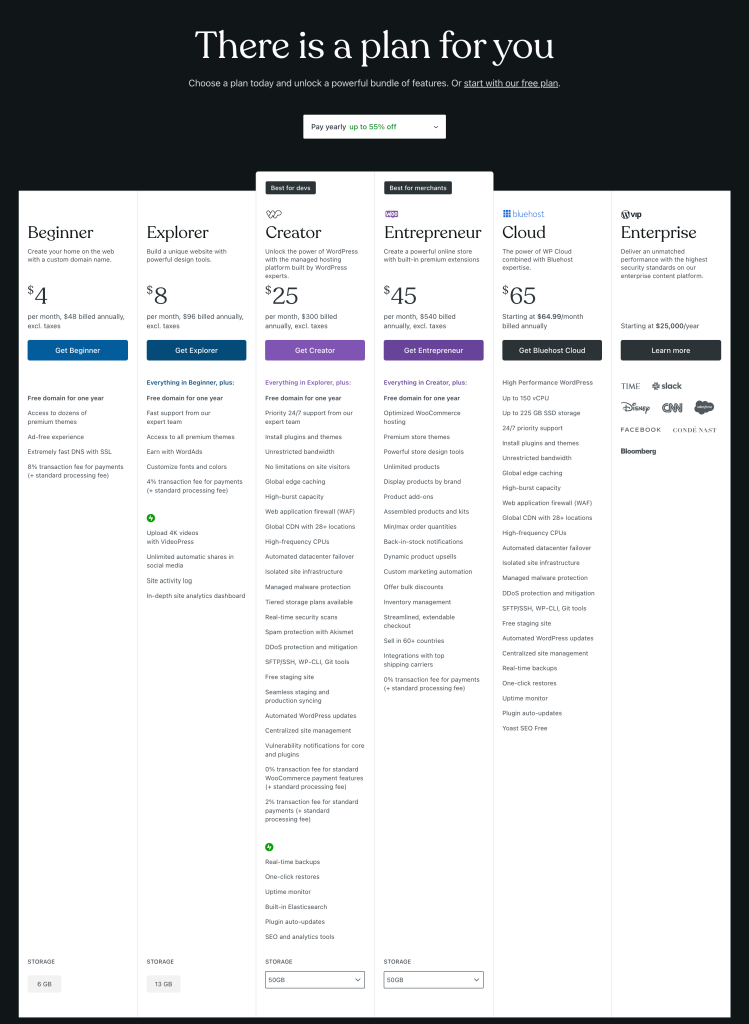
This makes ClickFunnels an attractive option for businesses prioritizing a streamlined, efficient approach to online marketing. Let’s break down the specific pricing tiers and what they include for both platforms to give you a clearer picture of the costs involved.
WordPress vs. ClickFunnels: customization
Regarding customization, WordPress and ClickFunnels offer distinct advantages tailored to different needs.
WordPress is renowned for its flexibility and extensive customization options. As a self-hosted platform, a WordPress site can be tailored to suit almost any requirement, thanks to the vast array of available themes, plugins, and widgets.
This allows businesses to create a highly personalized website that aligns perfectly with their brand and functional needs. WordPress provides the tools to add an e-commerce store, integrate social media feeds, or enhance your SEO.
While ClickFunnels is less versatile than WordPress in overall site customization, it excels in creating and customizing sales funnels.
It offers a range of pre-designed templates and a drag-and-drop editor that simplifies building each sales funnel step.
This makes creating a professional-looking funnel easy without extensive design skills. The focus on sales funnel customization allows businesses to optimize the customer journey and improve conversion rates efficiently.
WordPress is the choice for those looking to build a highly tailored, feature-rich website due to its flexibility and the breadth of customization options.
However, if your primary goal is to create a streamlined, high-converting sales funnel, ClickFunnels provides a more specialized and user-friendly solution. Understanding the strengths of each platform can help you choose the right one for your business needs.
Ideal Use Cases for ClickFunnels
ClickFunnels is a versatile tool that excels in specific scenarios, making it an ideal choice for various business needs.
One of ClickFunnels’ primary use cases is email marketing. The platform’s funnel builder is designed to capture leads effectively and nurture them through automated email sequences, helping businesses convert prospects into customers.
By integrating seamlessly with email marketing services, ClickFunnels allows you to manage your campaigns within a cohesive environment.
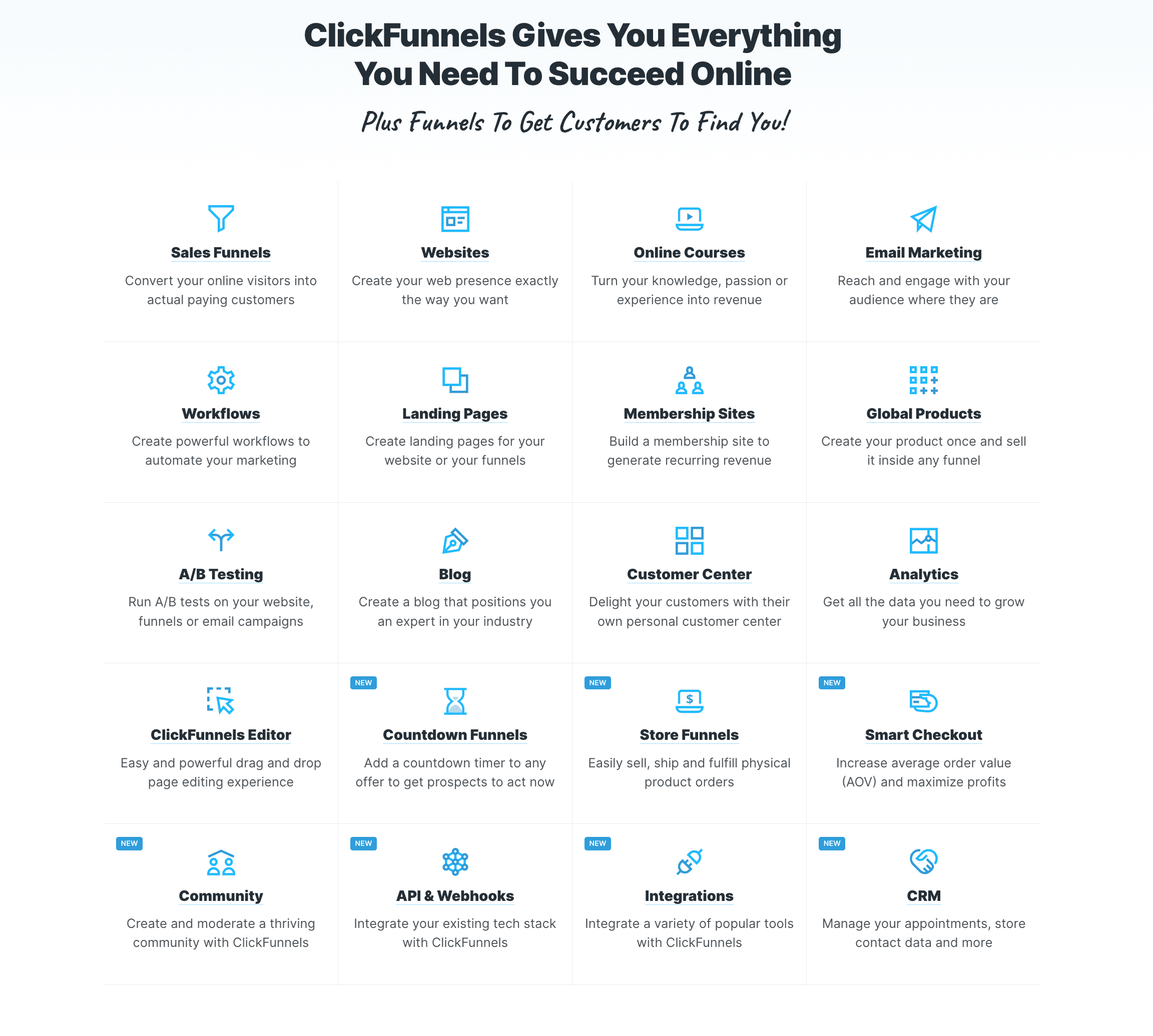
Another excellent use case for ClickFunnels is creating and marketing online courses. Educators and entrepreneurs can use the funnel builder to design a sales funnel that attracts students, showcases course content, and facilitates seamless enrollment.
With features such as membership areas and content delivery systems, ClickFunnels makes managing and selling online courses easy and provides a comprehensive solution for educational ventures.
Additionally, ClickFunnels is highly effective for businesses running targeted marketing campaigns. Whether launching a new product, promoting a special offer, or conducting a webinar, ClickFunnels’ funnel builder can help you create focused, high-converting campaigns.
Its ability to guide potential customers through a well-structured journey ensures that your marketing efforts are optimized for success.
Overall, ClickFunnels is particularly well-suited for businesses that rely heavily on email marketing, online course sales, and targeted campaigns. Its specialized tools and user-friendly interface make it a powerful asset for driving conversions and achieving marketing goals.
WordPress vs ClickFunnels: Customization
Customization is critical when choosing WordPress and ClickFunnels, as each platform offers unique advantages.
WordPress is renowned for its extensive customization capabilities, allowing users to create a highly personalized website.
With thousands of themes and plugins, you can tailor your WordPress site to meet specific needs, whether an e-commerce store, blog, or business site. The flexibility of WordPress enables seamless integration with a wide array of marketing tools, helping you enhance your site’s functionality and drive online success.
ClickFunnels, on the other hand, focuses on providing a streamlined experience for building and optimizing sales funnels. While it may offer many customization options that are different from WordPress, ClickFunnels excels in its niche.
The platform includes a variety of pre-designed funnel templates and a user-friendly drag-and-drop editor, making it easy to customize each step of the customer journey. This specialization ensures that every element of your sales funnel is optimized for conversion.
WordPress is ideal for businesses seeking a robust, multi-functional website with extensive customization and integration options.
Its ability to incorporate various marketing tools and adapt to different requirements makes it a versatile platform for long-term online success.
However, if your primary goal is to create high-converting sales funnels with minimal effort, ClickFunnels provides a focused and efficient solution. By understanding the customization strengths of each platform, you can choose the one that best aligns with your business objectives.
WordPress vs ClickFunnels: blogging
When it comes to blogging, WordPress stands out as the superior choice. WordPress sites are renowned for their robust blogging capabilities, making them a favorite among bloggers and content creators.
One key advantage of WordPress is its powerful content management system (CMS), which was designed specifically for blogging.
This platform offers many features and plugins that enhance the blogging experience, such as SEO tools that help your content rank higher on search engines.
WordPress provides extensive customization options, allowing you to design your blog to match your brand and style.
Additionally, WordPress’s flexibility means you can easily integrate various plugins to optimize your blog posts, manage comments, and even add multimedia content.
The platform’s seamless integration with social media and marketing tools further enhances your ability to reach a broader audience and drive traffic to your site.
On the other hand, while ClickFunnels does offer some blogging functionality, it lacks the depth and flexibility that WordPress provides.
ClickFunnels is primarily designed to create sales funnels, and its blogging features could be more comprehensive. WordPress is the winner for businesses and individuals who prioritize content marketing and want to establish a solid online presence through blogging.
Moreover, WordPress’s compatibility with various hosting services ensures that you can choose the best hosting solution for your needs, enhancing your blog’s performance and reliability.
In summary, for those looking to build a successful blog that performs well on search engines and offers extensive customization, WordPress is the optimal choice.
Do you need that complexity to sell your products
In digital marketing, the tools you choose can significantly impact your success. While comprehensive platforms like WordPress offer extensive customization and a wide range of features, they might only sometimes be necessary for some businesses. Sometimes, the added complexity can be more of a hindrance than a help, especially if your primary goal is to create just sales funnels that drive conversions.
ClickFunnels’ streamlined focus on building high-converting sales funnels provides a more straightforward, more direct approach to digital marketing.
By eliminating the need for numerous plugins and extensive customization, ClickFunnels allows you to focus on what truly matters: guiding your customers through a seamless purchasing journey. This simplicity can save time and resources, enabling you to launch campaigns quickly and efficiently.
For businesses that do not require the full breadth of features offered by platforms like WordPress, opting for a specialized tool like ClickFunnels can be more beneficial.
It allows you to concentrate on crafting effective sales strategies without getting bogged down by unnecessary complexity. Suppose your primary objective is to sell your products through optimized sales funnels.
In that case, ClickFunnels offers a straightforward and effective solution, proving that sometimes less is more in digital marketing.
Download ClickFunnels vs WordPress: An In-Depth Comparison Now!
Choosing between ClickFunnels and WordPress can be daunting for website owners, as both platforms offer distinct advantages tailored to different needs.
To help you make an informed decision, we’ve created an in-depth comparison that examines each platform’s strengths and weaknesses.
Whether you’re looking for a robust content management system or a specialized tool for creating high-converting sales funnels, this guide has you covered.
Our comprehensive comparison explores critical aspects such as ease of use, customization options, pricing, and specific use cases.
You’ll learn how WordPress’s extensive plugins and themes can transform your site into a powerful content management system, perfect for blogging, SEO, and long-term growth. On the other hand, if your focus is on building a streamlined, effective sales funnel, ClickFunnels offers unparalleled simplicity and efficiency.
Discover how a WordPress sales funnel can integrate with your overall content strategy and why some website owners prefer the all-in-one approach of ClickFunnels for their marketing campaigns.
By downloading this detailed comparison, you’ll gain valuable insights into which platform aligns best with your business goals and technical expertise.
Don’t miss out on this essential resource—download ClickFunnels vs WordPress: An In-Depth Comparison now and find the perfect solution for your online success.
Pros and Cons: ClickFunnels vs. WordPress
When evaluating ClickFunnels and WordPress, it’s essential to consider the pros and cons of each platform to determine which best suits your business needs.
ClickFunnels is a powerful tool designed to create high-converting sales funnels with ease. Its user-friendly interface and comprehensive funnel-building features allow marketers to launch effective campaigns without extensive technical knowledge.
However, this specialization can also be a limitation; ClickFunnels needs WordPress’s versatility and vast customization options.
WordPress is an incredibly flexible content management system that supports many functionalities. The platform benefits from a vast library of WordPress plugins, allowing users to add almost any feature they need, from SEO tools to e-commerce capabilities.
Additionally, the vibrant WordPress community offers extensive support, tutorials, and resources, making it easier for users to troubleshoot issues and enhance their sites.
However, with this flexibility comes complexity. Setting up and maintaining a WordPress site can be time-consuming and often requires a reliable hosting service to ensure optimal performance and security.
In summary, ClickFunnels is ideal for businesses focused on quickly and efficiently building and optimizing sales funnels. At the same time, WordPress is better suited for those seeking a highly customizable and versatile platform for broader content management and long-term growth. You can choose the platform that best aligns with your specific goals and technical capabilities by weighing the pros and cons.
WordPress vs ClickFunnels: Publishing Tools
One key aspect to consider when comparing WordPress and ClickFunnels is each platform’s publishing tools. WordPress, as a comprehensive content management system, excels in content management and publishing. It provides extensive tools and plugins that make creating, editing, and organizing content straightforward. WordPress offers unparalleled flexibility in publishing blog posts, articles, or multimedia content. The platform’s robust editor and numerous plugins enable seamless content creation and optimization, making it ideal for businesses prioritizing content marketing and SEO.
On the other hand, ClickFunnels is designed explicitly as a sales funnel builder, focusing on creating and optimizing landing pages that drive conversions. The platform includes intuitive publishing tools, allowing users to quickly design and launch landing pages, sales pages, and sales funnels. ClickFunnels’ publishing capabilities are geared toward marketers who must swiftly deploy targeted campaigns. While it may offer a different depth of content management features than WordPress, ClickFunnels excels in simplifying the process of building and publishing conversion-focused pages.
WordPress offers superior publishing tools if your primary goal is to manage a wide range of content types on a flexible website platform. However, if you want to streamline the creation and publication of high-converting landing pages and sales funnels, ClickFunnels provides the specialized tools needed to achieve those goals efficiently. Understanding the strengths of each platform’s publishing capabilities can help you choose the right tool for your business needs.
What WordPress page builders are like ClickFunnels?
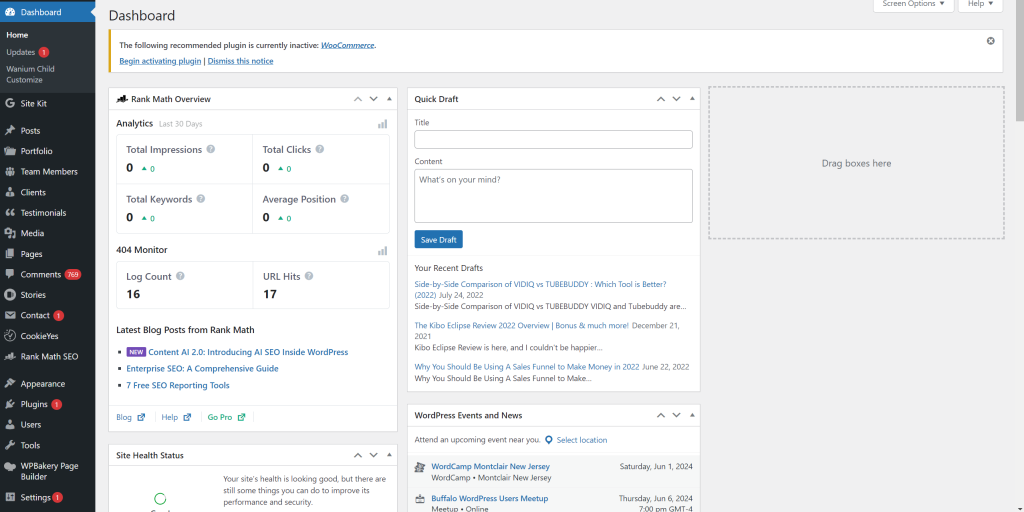
Several WordPress page builders offer similar functionalities for those who prefer WordPress’s versatility but want ClickFunnels’ streamlined, sales-focused capabilities. These page builders combine ease of use with advanced features, enabling users to create visually appealing and high-converting pages without extensive coding knowledge.
Elementor is one of the most popular WordPress page builders, rivaling ClickFunnels in functionality. It offers a drag-and-drop interface, a vast library of pre-designed templates, and numerous widgets that make building sophisticated landing pages and online stores easy. With its advanced features and premium themes, Elementor allows for significant customization, ensuring your pages look great and perform exceptionally well in converting visitors.
Another strong contender is Divi by Elegant Themes. Divi provides a robust visual editor that simplifies designing intricate sales pages and funnels. Its real-time design interface and a wide array of pre-made layouts make it a powerful tool for creating professional-grade pages. Divi’s seamless integration with various WordPress plugins further enhances its functionality, making it a versatile option for businesses seeking aesthetic appeal and performance.
Beaver Builder is also worth mentioning for its user-friendly interface and flexibility. Its modular design system allows for extensive customization, perfect for creating unique landing pages and sales funnels. Like Elementor and Divi, Beaver Builder supports advanced features and premium themes, catering to users who need simplicity and depth in their page-building efforts.
In conclusion, WordPress page builders like Elementor, Divi, and Beaver Builder offer comparable functionalities to ClickFunnels, providing the tools to create high-converting pages and online stores. These builders combine advanced features with WordPress’s flexibility, making them ideal for businesses looking to leverage the strengths of both platforms.
WordPress vs ClickFunnels: eCommerce
Regarding eCommerce functionality, WordPress and ClickFunnels offer distinct advantages tailored to different needs. With its robust ecosystem of plugins and themes, WordPress excels in providing comprehensive eCommerce solutions. By integrating plugins like WooCommerce, businesses can transform their WordPress sites into fully functional online stores. WooCommerce offers extensive customization options, allowing you to manage products, track inventory, handle payments, and optimize your store for search engines. This flexibility makes WordPress an ideal choice for businesses that require a highly customized eCommerce setup with advanced features.
ClickFunnels, on the other hand, is designed to streamline the sales process, making it a strong contender for businesses focused on converting leads into customers. Its eCommerce functionality centers around creating high-converting sales funnels that guide customers through purchasing. ClickFunnels simplifies the eCommerce setup with its intuitive interface and integrated tools, enabling businesses to launch and optimize their online stores quickly. While it may not offer the same level of customization as WordPress, its focus on conversion makes it a powerful tool for SaaS platforms and other businesses looking to maximize their sales.
WordPress is ideal for those seeking a comprehensive and customizable eCommerce solution, thanks to its wide range of plugins and themes. ClickFunnels, with its streamlined approach to sales funnels, is perfect for businesses prioritizing quick setups and high conversion rates. By understanding the strengths of each platform’s eCommerce capabilities, you can choose the one that best aligns with your business objectives.
WordPress Tools for Search Engine Optimization
WordPress offers many tools and plugins that enhance its functionality, making it a powerful platform for various websites. One of the standout tools for WordPress is RankMath, an SEO plugin designed to help users optimize their content for search engines. RankMath provides a user-friendly interface and a suite of features that make improving your site’s search engine rankings easier. RankMath equips website owners with everything they need to attract organic traffic, from keyword optimization and on-page SEO to advanced schema markup.
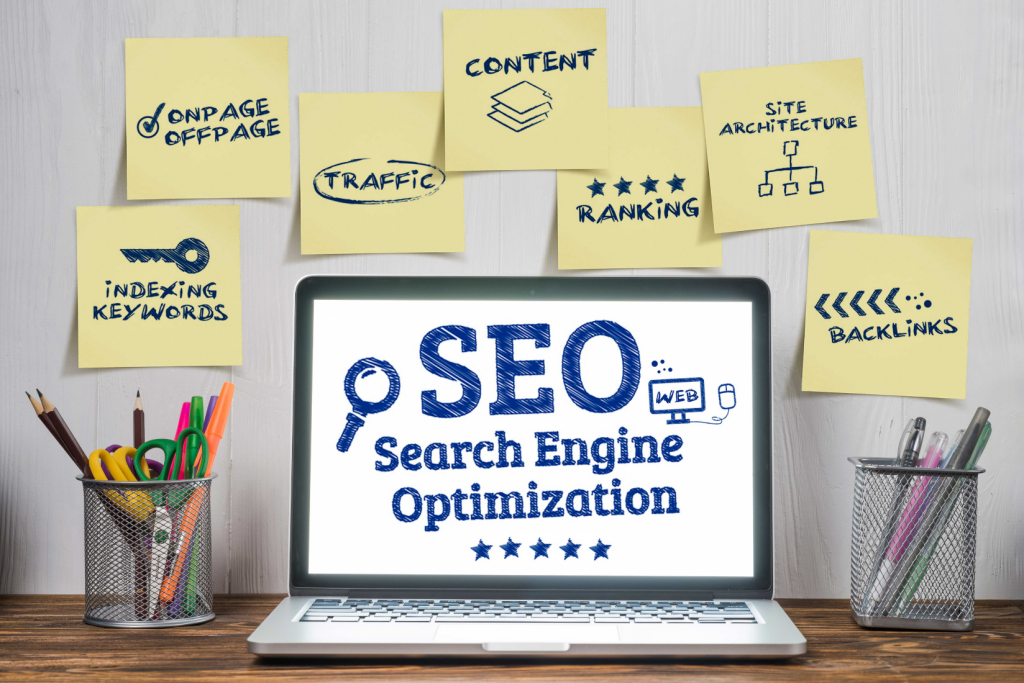
In addition to RankMath, WordPress boasts a vast ecosystem of plugins that cater to different needs. WooCommerce is the go-to plugin for eCommerce, offering robust features for setting up and managing online stores. For security, plugins like Wordfence and Sucuri provide essential protection against threats. WordPress also gives tools for enhancing site performance, such as WP Super Cache and W3 Total Cache, which improve load times and user experience.
Another critical advantage of WordPress tools is their seamless integration with third-party services and applications. Whether you need to integrate email marketing platforms, social media networks, or analytics tools, WordPress plugins make extending your site’s capabilities accessible.
Overall, the availability and diversity of WordPress tools make it an incredibly flexible platform, allowing website owners to build and optimize their sites according to their specific needs. Whether focusing on SEO with RankMath or expanding your site’s functionality with other plugins, WordPress provides the tools necessary for online success.
Conclusion: Is ClickFunnels Better than WordPress?
WordPress offers many tools and plugins that enhance its functionality, making it a powerful platform for various websites. One of the standout tools for WordPress is RankMath, an SEO plugin designed to help users optimize their content for search engines. RankMath provides a user-friendly interface and a suite of features that make improving your site’s search engine rankings easier. RankMath equips website owners with everything they need to attract organic traffic, from keyword optimization and on-page SEO to advanced schema markup.
In addition to RankMath, WordPress boasts a vast ecosystem of plugins that cater to different needs. WooCommerce is the go-to plugin for eCommerce, offering robust features for setting up and managing online stores. For security, plugins like Wordfence and Sucuri provide essential protection against threats. WordPress also gives tools for enhancing site performance, such as WP Super Cache and W3 Total Cache, which improve load times and user experience.
Another critical advantage of WordPress tools is their seamless integration with third-party services and applications. Whether you need to integrate email marketing platforms, social media networks, or analytics tools, WordPress plugins make extending your site’s capabilities accessible.
Overall, the availability and diversity of WordPress tools make it an incredibly flexible platform, allowing website owners to build and optimize their sites according to their specific needs. Whether focusing on SEO with RankMath or expanding your site’s functionality with other plugins, WordPress provides the tools necessary for online success.
FAQ
What are the advantages of a sales funnel?
Sales funnels are essential for guiding potential customers through the buying process in a structured and efficient manner. They help increase the conversion rate by nurturing leads at each funnel stage, from awareness to decision. Sales funnels allow businesses to track and analyze customer behavior, enabling them to optimize marketing strategies and improve overall sales performance. Additionally, they simplify the customer journey, making identifying and addressing any drop-off points easier, ultimately leading to more successful sales outcomes.
Does WordPress have a funnel builder?
While WordPress does not have a native funnel builder, several plugins are available that add this functionality to your WordPress site. Plugins like CartFlows, Thrive Architect, and Elementor Pro enable you to create compelling sales funnels within your WordPress site. These tools offer drag-and-drop builders, pre-designed templates, and various customization options, allowing you to design funnels that convert visitors into customers seamlessly.
Alternatives to ClickFunnels: Custom Sales Funnel Solutions
Several alternatives to ClickFunnels offer robust sales funnel solutions. Tools like Leadpages, Kartra, and Builderall provide comprehensive platforms for building and managing sales funnels. For those who prefer WordPress, plugins like CartFlows and Thrive Architect are excellent choices. These alternatives offer features such as drag-and-drop editors, pre-built templates, and integrations with popular marketing tools, providing flexibility and customization to suit different business needs.
Can you use ClickFunnels as your website?
Yes, you can use ClickFunnels as your website. ClickFunnels offers the functionality to create entire websites, not just sales funnels. With its drag-and-drop builder, you can design landing pages, blog posts, and product pages. While it may have a different customization and versatility than a traditional content management system like WordPress, it is a viable option for businesses focused primarily on sales and marketing funnels.
What is the difference between a landing page and a sales funnel?
A landing page is a standalone web page designed to capture leads or prompt visitors to take a specific action, such as signing up for a newsletter or downloading a free resource. It typically focuses on a single offer or message. A sales funnel, on the other hand, is a series of connected steps or pages that guide a potential customer from initial awareness to final purchase. It involves multiple stages, including lead capture, nurturing, and conversion, ensuring a structured journey that maximizes the likelihood of a sale.
Can ClickFunnels replace your website?
ClickFunnels can replace your website if your primary focus is building and optimizing sales funnels. It provides the tools to create landing pages, sales pages, and marketing funnels. However, a traditional website platform like WordPress might be more suitable if your website requires extensive content management features, blogging capabilities, or complex e-commerce functionalities. ClickFunnels excels in sales and marketing automation but may offer a different level of versatility than a full-fledged CMS.
Which is more affordable, WordPress or ClickFunnels?
The affordability of WordPress versus ClickFunnels depends on your specific needs and how you set up your website. WordPress is free, but you may incur costs for premium themes, plugins, and hosting services. This can range from a few dollars per month to several hundred dollars annually, depending on your choices. ClickFunnels, on the other hand, offers tiered subscription plans starting at $97 per month, which include funnel-building tools and hosting. While ClickFunnels provides an all-in-one solution, WordPress can be more cost-effective if you manage your expenses carefully and only pay for the needed features.


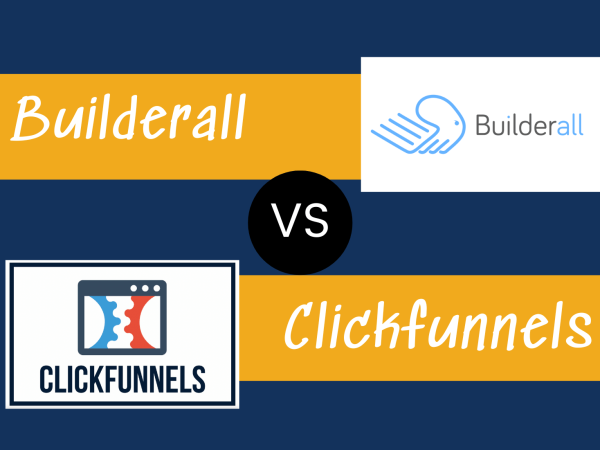






Comments are closed.